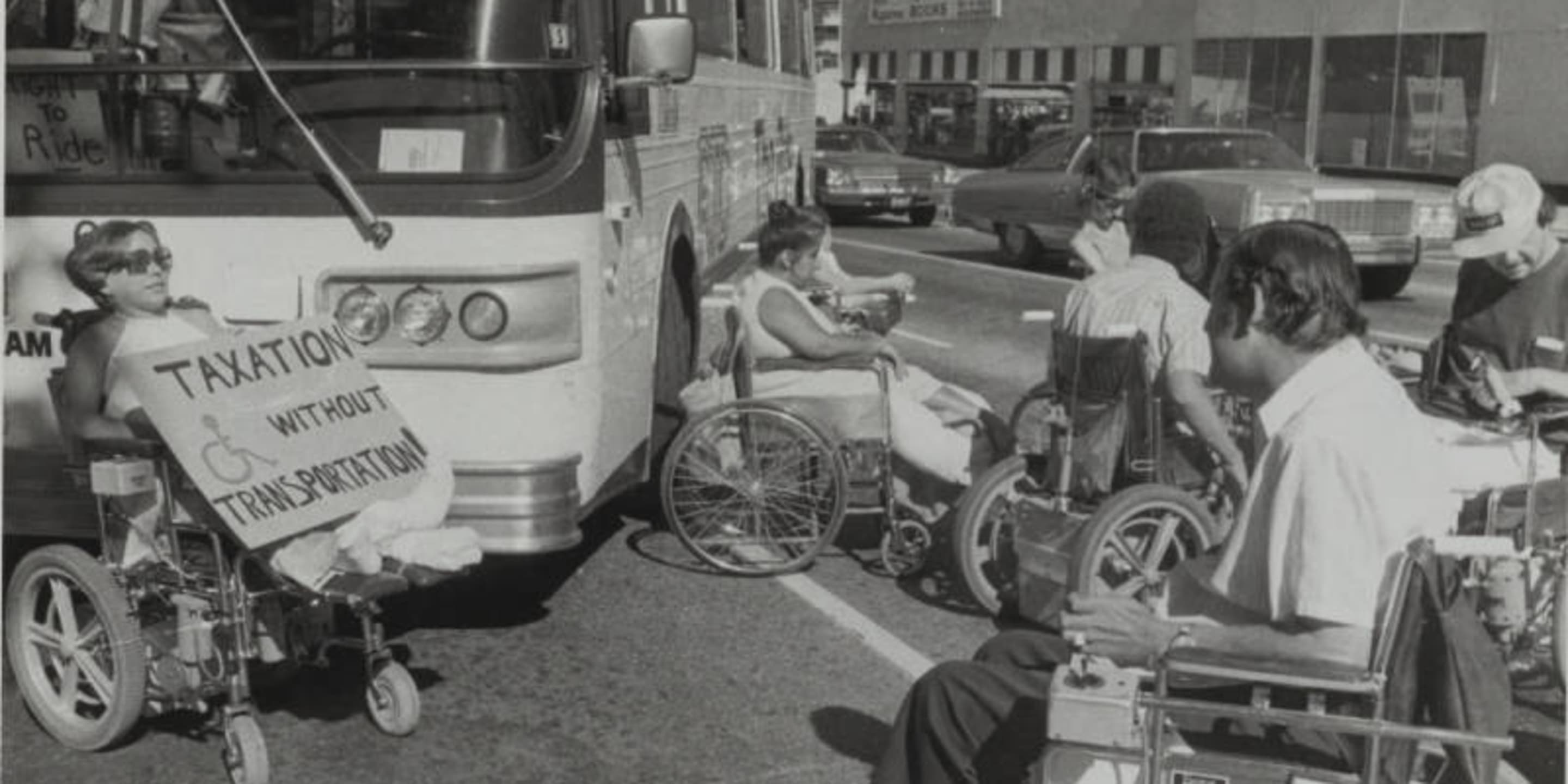
Protests led by disability advocates brought historic changes to public transportation accessibility
In a display of unity and tenacity, a circle of people in wheelchairs surrounded two RTD buses on July 5 and 6, 1978, in downtown Denver. This protest eventually led to the passing of the landmark Americans with Disabilities Act (ADA). The act forever transformed life for individuals with disabilities, by prohibiting discrimination in all areas of public life, including jobs, schools, transportation, and all places open to the general public.
Mike Oxford, a lifelong disability activist, spoke about his experiences in activism with Rev. Wade Blank, an important organizer of the disability rights and independent living movement, during a plaque rededication for Blank in 2023
Oxford described life before the ADA was passed as extremely segregated. Before the 1970s, individuals with disabilities were typically institutionalized. However, after countless reports of abuse and mistreatment, people began to move out of these unsafe spaces.
Transportation was also limited and inaccessible for people with disabilities. Most buses lacked wheelchair lifts and were inconvenient. A single trip could take many hours and cost more due to the lack of buses with proper accommodations.
In 1971, Blank began working at a nursing home in Denver. After seeing how its disabled residents were being mistreated, he created Atlantis, a haven for people with severe disabilities to live semi-independently. Blank began to move individuals out of the nursing home by himself, providing care to a small group of people in his new community.
According to Oxford, Blank’s role was to support and organize the community while showing people with disabilities “the way of power.” Blank remained behind the scenes and allowed people with disabilities to be at the forefront.
Oxford stated that it is important to recognize that the Civil Rights movement, led by Black activists, is the foundation of the disability rights movement. A political offshoot of Blank’s Atlantis community, American Disabled for Attendant Programs Today (ADAPT), was paramount in raising awareness of the disability rights and independent living movement.
Now known as the Gang of 19, a group of ADAPT members gathered at the intersection of Broadway and Colfax Avenue on July 5 and 6 in 1978. Protestors halted the RTD buses for these two days, demanding more accessible transportation in Denver.
RTD had recently ordered 250 buses, all without wheelchair lifts. The buses were narrow, steep, and people using wheelchairs could not access them.
“We will ride!” the protesters shouted as they held up signs that said, “Access is a civil right,” and “taxation without transportation.” Their call to action sparked change – RTD updated a third of its bus fleet to include wheelchair lifts, making Denver a pioneer for providing accessible transit options.
ADAPT continued to fight for accessible transportation by traveling across the country protesting the American Public Transportation Association and other bus companies like Greyhound.
Seven years after the protest, RTD became the first metropolitan agency in the country to provide wheelchair-accessible service on all local buses. Even after the passing of the ADA Act in 1990—signed into law by President George H.W. Bush—the fight for accessibility continues. Like “water around the rock”, Atlantis and other independent living activists across the nation continue to fight against all obstacles for individuals with disabilities.
In 2023 RTD recognized Blank and the Gang of 19 with a plaque rededication at Civic Center Station, steps away from the site of the 1978 protests. Recently, a proposal to rename Civic Center Station to Wade Blank Civic Center was submitted to RTD’s Board of Directors. In May 2025, Denver City Council voted unanimously in support of the change. The Board is expected to vote on the proposal in July. Later this summer, RTD will celebrate 35 years of the ADA becoming a law, with a bus wrapped in commemorative artwork.